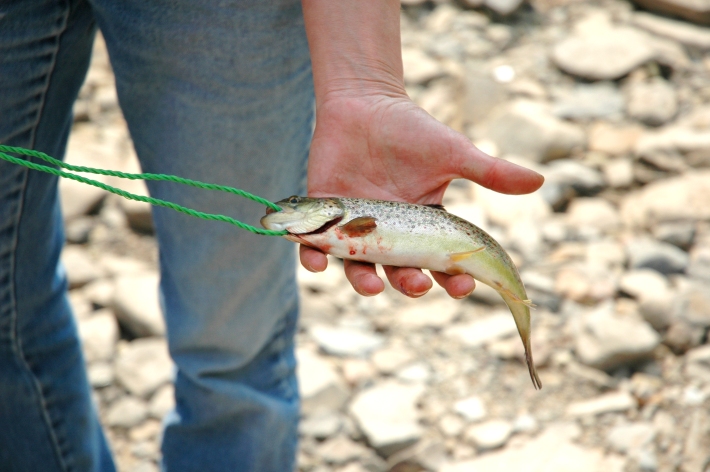Whether you are “dieting” or trying to eat healthier selections, you have undoubtedly heard countless doctors, politicians, nutritionists, environmentalists, activists and the like rail against the evils of Genetically Modified Organisms (GMO) and praise the marvels of organic foods. The differences between the two are well known, but in case you aren’t convinced, take a look at the subject again from a historical, a physiological and even a common sense perspective, especially if you don’t believe that one of these foods is decidedly better than the other. Naturally you would suspect my bias, given this website. I can at least say that my opinion is based on decades of experience and observation of how foods function in my body, on my recent weight loss odyssey, and on a lot of reputable research.
A 2012 study on the subject of conventional and GMO foods versus organic foods caused quite a stir. Based on a meta-study of already existing research and not on any newly formed studies, Stanford University scientists concluded that there was no significant difference in the quality and health value of organic foods over conventionally produced foods. Of course this is a perfectly ludicrous idea but one that could upset many people’s healthy food selections and cause quite a bit of damage. Are all GMO foods really bad for you? Haven’t we been eating them for quite some time now? What studies actually exist that demonstrate their dangers and should you believe that research over those who claim GMO foods are not harmful? Who is right?
A preliminary answer to these question is a common-sense one. If you had the choice to eat a piece of salmon, wild-caught, swimming in clean waters (so its foods are also clean) and eating its natural foods to produce the Omega oils so beneficial to our joints and immune system; or you could eat a piece of perhaps less expensive salmon that is farmed (so it doesn’t get the natural exercise and flow of changing water through its gills it needs, is fed unnatural and a limited variety of foods such as grain [can you imagine a fish wanting to eat corn, for goodness sake] and who, through this environment, becomes stressed and produces poisons as a result): which would you eat? Hopefully you would eat the natural salmon because you would not want your body to ingest the poisons of the farmed fish. Notice that in this scenario, the fish needed to swim in clean water; today’s waterways are heavily polluted from urban run-off, dumping, factory farming, fracking and a host of other offenses, making the ability to find this basic environmental requirement for health fish substantially lessened. Unfortunately, limiting fish, especially ocean fish is an effective way to avoid a host of toxins.
A similar example occurs when one considers eating apples, one of nature’s healthiest foods and an excellent immune booster (though Americans have been heavily restricted in their grocery stores to only a few of the hundreds of varieties of apples). The common sense answer about how this food should be served, especially to children, was heard loudly around the country as soon as mothers everywhere got the news that their apples and apple juice contained arsenic. When it comes of our children, unquestionably we want them to eat natural, non-chemical foods. Arsenic has been used as a pesticide on apples as early as 1966. With this chemical being used so long on apples, one might think there’s no problem. Of course the question becomes why and under what circumstances does the body need arsenic? This chemical naturally occurs in rice—is this, too, a problem? Yes, it’s a problem. Arsenic is highly poisonous, and a myriad of information has been produced to help people avoid ingesting it, especially in ground and drinking water.
Common sense says we want to eat clean non-chemically-toxic foods; our bodies simply are not physiologically capable of processing all the chemicals we currently ingest. We want to eat much of what our parents and especially our grandparents were fed from their Victory Gardens, small farms and urban patches like the one my grandmother kept at 215 West Lee Street in Richmond, Virginia. She was urban gardening and feeding her family before anyone ever thought of such a term. Why is it, then, that we question our common sense? Perhaps convenience and modernity are to blame; they brought us the microwave oven, zillions of cooking appliances and in the 1950s, the TV dinner—a start to our love affair with faster food. And even the half hour it took to bake your TV dinner wasn’t enough; we created microwave packaging and a newer, faster oven to get that balanced meal in five minutes or less. Of course we never considered that microwaves might compromise our health and alter our foods in unhealthy ways.
Physiologically speaking, our bodies just function better when we ingest less processed, naturally occurring substances, whether foods, herbs and spices, or meats. No one can argue with doctors or with the evidence from their own bodies that we need a certain amount and certain types of vitamins, nutrients and minerals daily in order to maintain or regain our health. Just like gas in a car, our bodies don’t run without these. And just like a sensible car owners who selects the right grade and perhaps even brand of gas that will keep that car running as trouble free as possible, we should treat our bodies the same. Not all food is created equally—GMOs being a case in point. They look pretty, have nice color, offer extended shelf-life, have more perfect physical features like no spots on our bananas, but these foods have been shown to cause a multitude of health issues, from allergies to organ compromise.
There is simply no disputing that organic foods are better for your body if for no other reason than they contain fewer chemical fertilizers and pesticides. Notice I didn’t say “no” chemicals or pesticides. That would be nearly impossible in our current polluted world unless the foods is produced in a completely sterile environment. But organic foods are grown in decidedly cleaner conditions and without the chemicals like arsenic, Deet, and the like. Opponents argue that organic farming would only increase crop losses, which are 20 – 40% a year due to weeds, pests and diseases. Plenty of natural methods of pest control exist and should be employed. Doing so would help preserve multiple layers of nature from insects for pollination to other animals and plants. And using natural products like garlic and cayenne as pesticides can help to preserve the vitamins and nutrients in foods that our bodies need desperately. Many Americans are actually severely malnourished because of the quality, not the quantity, of food they eat. Using pesticides in farming threatens our health in multiple ways—pesticide run-off that poisons the water; the creation of super weeds that choke out other naturally occurring, beneficial flora; the killing of many beneficial insects, not just the pests. One of the biggest losses of farmland occurred recently in Georgia, where acre after acre became clogged with pigweed which, according to Natural Resources Conservation Service, “makes kudzu look like a slow moving redwood tree
The benefits of eating organic as you diet are undeniable. If you consider that in any weight loss process, your body is shedding not only pounds but toxins, then it eases the weight loss process when you cease to put extra toxins in your body, toxins which get together with other chemicals and wreak havoc on various systems, most notably, the hormone-controlling endocrine system. You might have heard a good deal lately about the effects of leptin and cortisol on weight loss. Imagine how much harder your body is working against itself if its endocrine system is being disrupted by foreign toxins that you can fairly easily avoid. Eating organic foods significantly lessens the toxins you ingest and gives your digestive system and the “cleaning organs”—kidney, liver, gall bladder and pancreas—a break. Fewer new toxins means that these systems can work on eliminating stored toxins and fat, making you drop the weight faster and feel much healthier!
When you are making your food decisions, deciding whether to spend the extra cash for organics and wondering whether you are wasting you money, don’t be confused. Follow your ancestors’ behavior and your common sense. Buy, eat and grow organics—leave the extra servings of arsenic, Deet, Proxac and other pharmaceuticals, Roundup and other pesticides, and all around bad entities on the grocery store shelves. If more of us do this, we could eventually eliminate many harmful chemicals hidden away in our foods.
By Melissa Prunty Kemp, M.A., M.F.A.


